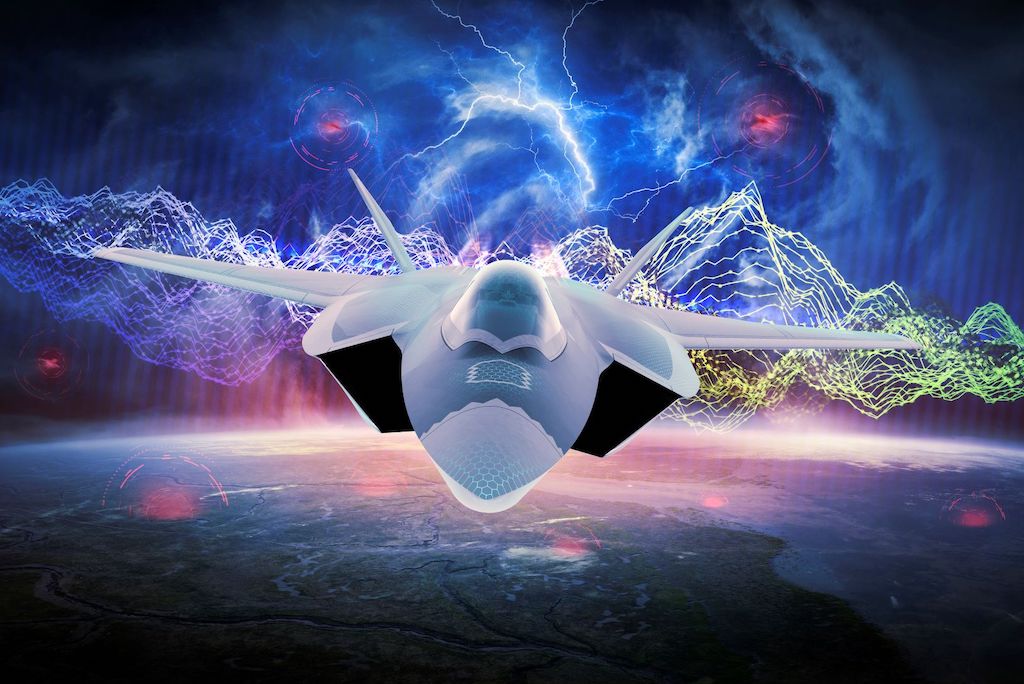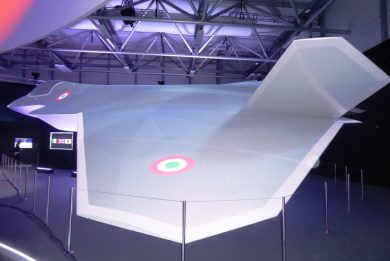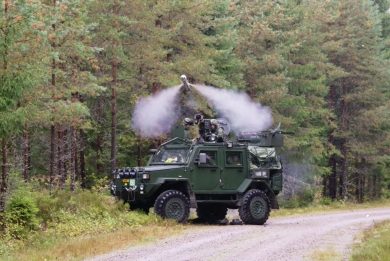
DSEI 2023 – Global Combat Air Programme progress
The Global Combat Air Programme, GCAP in short, remains the key programme to ensure the air fighting capability of three nations, the United Kingdom, Italy and Japan. At DSEI 2023 more emerged on the programme status
At the London exhibition Andrew Howard, Director of GCAP at Leonardo UK, said that the programme’s tri-national partners, Japan, Italy and the UK, are planning to define the sensor hardware for the future fighter aircraft and allocate work share by mid-2025. With an optimistic in service date of 2035, the companies working on its sensor technology which is worth up to 30% of the new fighter, Leonardo UK, Italy’s ELT Group and Japan’s Mitsubishi Electric, will have to work closely together.
The partner’s aim is to work towards agreeing a joint project delivery set-up for GCAP’s ISANKE & ICS domain (Integrated Sensing and Non-Kinetic Effects & Integrated Communications Systems) that will include the radar being developed by Leonardo UK. ISANKE & ICS is the advanced electronics on-board the GCAP combat aircraft, providing the aircrew with mission-critical information and advanced self-protection capabilities. It will provide a fully integrated sensing, fusion and self-protection capability. At the same time, the integrated communications system will allow ISANKE to operate as a network across formations of crewed and uncrewed aircraft, as part of each nations’ wider, multi-domain system-of-systems. ISANKE & ICS will involve the systems talking to each other and a new way of integrated thinking by the equal partners as they assess the business partnership. NATO and Japanese classifications of the sensor packages will be agreed by governments.
Both the UK and Japan will have their own GCAP flight test aircraft. Leonardo UK have contracted the British aerospace services group 2Excel to provide a flight test aircraft, named Excalibur. In the first phase of the project, 2Excel conducted an in-depth engineering study on a retired Boeing 757 airframe, involving the meticulous dismantling of it by UK industry experts. The comprehensive study aimed to equip the UK team with adequate regulatory evidence and design information for the Civil Aviation Authority (CAA), thus paving the way for the certification of the second, modified aircraft for flight that will be a flying laboratory for integrating GCAP communications systems, radar and sensors, to be operational by 2026.
Also announced at DSEI 2023 was the signing of a collaboration agreement between MBDA UK, MBDA Italia and Japan’s Mitsubishi Electric Corporation to work towards an Effects Domain to support the design of core-platform as part of the GCAP. The three companies will work together in the effects domain to ensure the seamless integration of weapons for the GCAP platform. If future, the collaboration will also include working on weapon effects management and related technologies.
Image courtesy Leonardo UK


